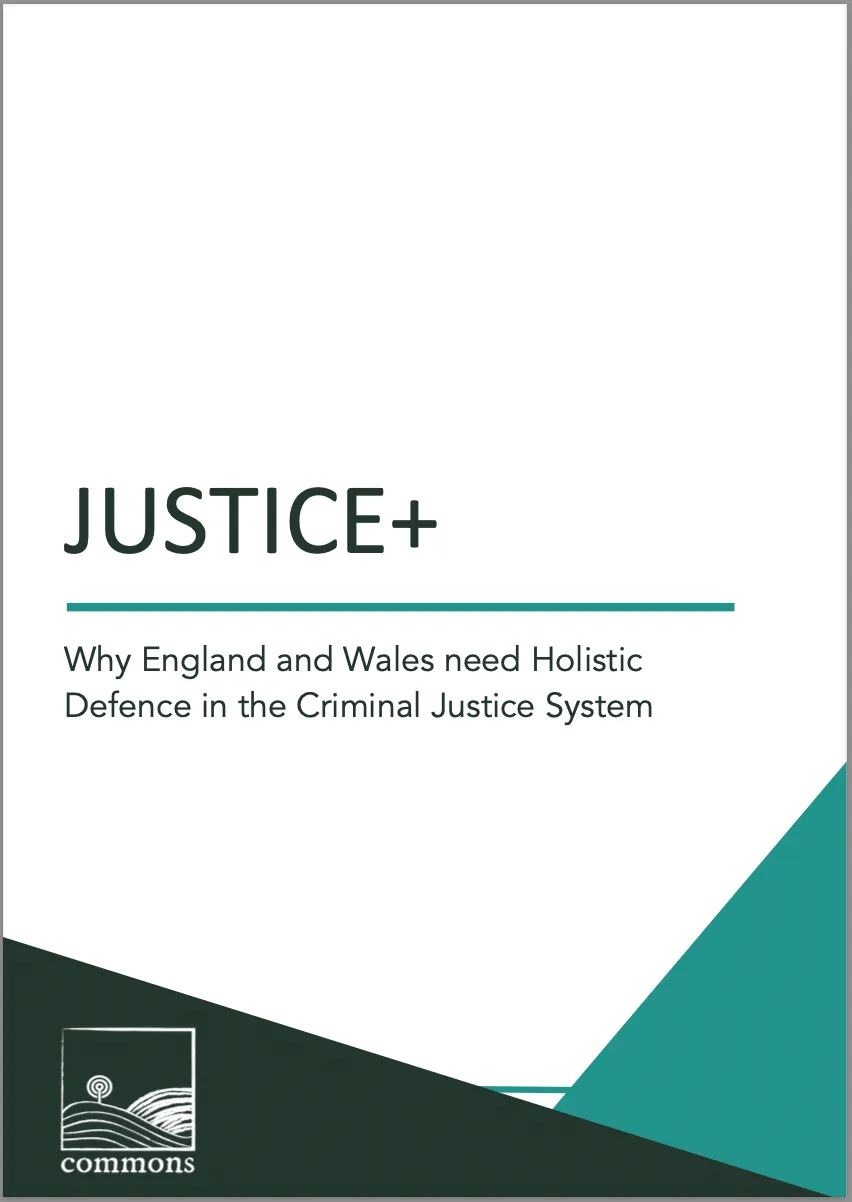
The criminal justice system in England and Wales is in an omni crisis, prisons are full and dilapidated, publicly funded criminal defence services are declining and disappearing, victims and taxpayers bemoan the poor value and standards of justice and swathes of people are criminalised each year unnecessarily. The problems facing the system are multi-faceted and involve confronting the voting public with the true wasted cost of decades of sentencing inflation and mismanagement.
Commons was established because our founders recognised the interconnected nature of criminalisation and social inequalities. Practising a tested model of holistic criminal defence, in 2020 we obtained funding to employ a Crisis Navigator (akin to an in-house social worker) to work alongside our legal team to support our clients to secure housing, employment and training, health care and much more.
We believe strongly that an integrated model of legal and social support could be crucial to the success of reform to the criminal justice system which is far reaching and permanent.
In this paper we have collated the latest research on the efficacy of holistic defence, as it exists in other jurisdictions (particularly the United States) and taking into account our experience of criminal defence in England and Wales so that it is relevant to current policymakers.
We show that a holistic defence model can:
• Prevent people in crisis from being criminalised by addressing their underlying needs
• Reduce incarceration costs
• Avoid wrongful convictions
• Reduce recidivism, and
• Increase efficiency and productivity in the criminal litigation process
Our report firstly briefly summarises the current problems in the criminal justice system, exemplified by the crisis in the prison estate and the lack of services for people experiencing crises. We then propose a solution, ‘Justice+’ - an expanded pilot of our holistic defence model in London that will be an incubator for the Mayor of London and/or Ministry of Justice to assess the economic and social benefits of this preventative approach. Finally, we have set out how an expanded holistic defence service could be paid for in the short to medium term.
Fundamentally, we need to think afresh about the paucity of preventative approaches in criminal justice and how we can meaningfully reduce swathes of lower-level crimes by addressing the needs of the most vulnerable people in society. The Labour party has experience of introducing new integrated ways of working, such as the Sure Start network of children’s centres, which showed that bravery and boldness in holistic public programming can yield effective outcomes. It is time to turn the corner away from crisis and towards delivering a true public good and fulfil the national mission to raise confidence in the criminal justice system to its highest levels.